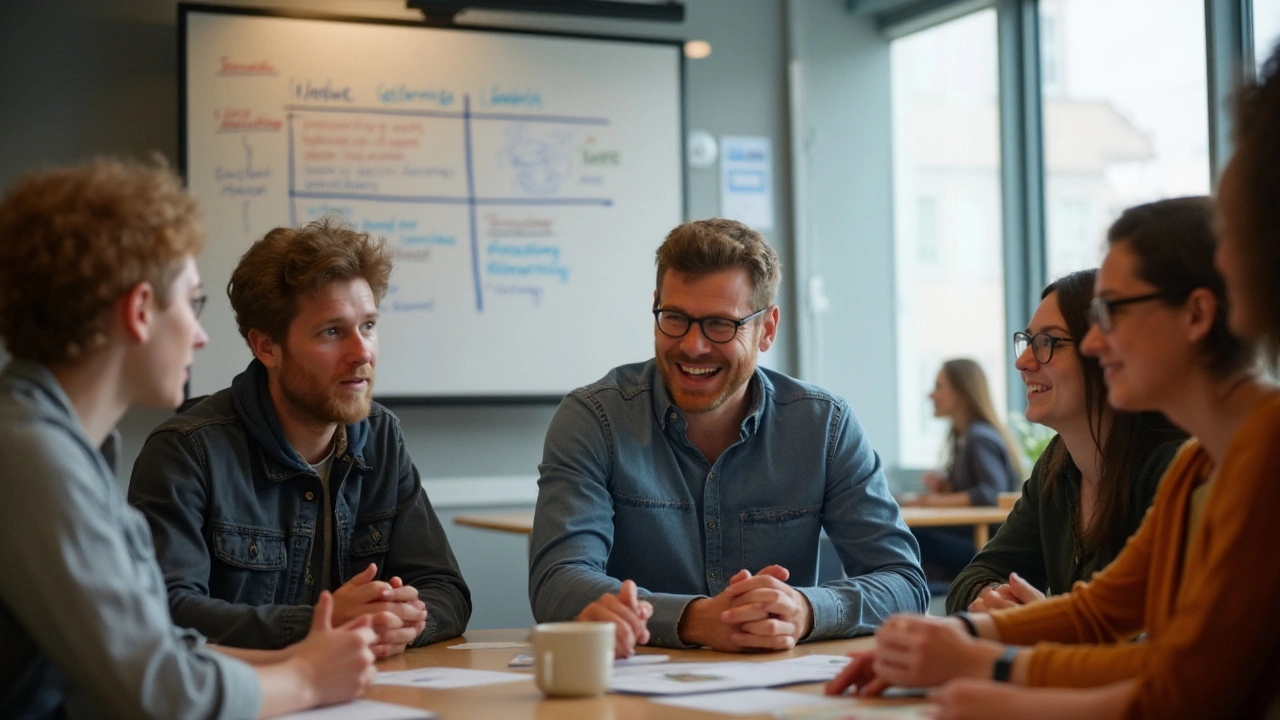Lifelong Education: Why Learning Never Stops
Ever wondered why some people seem to keep picking up new skills even after school? It’s not luck – it’s a habit called lifelong education. You don’t need a diploma to start; you just need curiosity and a plan.
What Counts as Lifelong Learning?
Anything that adds knowledge or ability counts. It could be a short online course on digital marketing, a local workshop on woodworking, or even reading a book about nutrition. The key is that you’re deliberately improving yourself beyond what you learned in formal school.
Our own article What Is Adult Learning? Understanding Lifelong Education Made Easy breaks down the basics: adult learners are motivated by relevance, convenience, and tangible results. When you see how a new skill fits your work or hobbies, you’re more likely to stick with it.
How to Build a Lifelong Learning Routine
1. Set a tiny goal. Instead of aiming to master a language in a month, plan to learn five new words a day. Small wins add up.
2. Pick the right format. Some people absorb info by watching videos, others by doing hands‑on projects. Try a mix – a video tutorial followed by a practical exercise.
3. Schedule it. Treat learning like any other appointment. Block 20 minutes in your calendar each morning or right after lunch.
4. Track progress. Keep a simple log: date, what you learned, and a quick reflection. Looking back at your log shows real growth and keeps you motivated.
5. Connect with others. Join a forum, a local club, or a study group. Sharing insights makes the process social and fun.
One of our readers asked how to start when they feel overwhelmed. The answer? Begin with a free online course that matches a current need – like “basic Excel for work” – and apply the steps above.
Remember, lifelong education isn’t about stacking certificates. It’s about staying adaptable. In fast‑changing fields like tech or remote work, the ability to learn quickly is a career booster. Our post on Most In Demand Online Jobs in 2025 shows which skills employers are hunting for right now – data analysis, digital marketing, and basic coding.
If you’re an adult who missed out on formal basics, our guide Adult Basic Learning: Essential Skills for Everyday Confidence offers a roadmap for reading, writing, and numeracy. Mastering these foundations opens doors to more specialized learning later.
Finally, think of lifelong education as a personal investment. The time you spend now pays off as higher confidence, better job prospects, and a richer life. So pick that first topic, set a mini goal, and start today. The journey is yours – keep moving forward, one lesson at a time.

Why Learning Gets Tougher with Age
- by Eliza Fairweather
- on 4 Apr 2025
As we get older, our brain faces new challenges that make learning new things harder. This article explores why this happens and offers tips to keep your mind sharp. Discover how changes in the brain impact learning and how lifestyle choices can help you stay mentally active.

Understanding the 7 Effective Principles of Adult Learning
- by Eliza Fairweather
- on 26 Jan 2025
Adult learning takes center stage in various aspects of personal and professional life today more than ever. Understanding the rules that guide how adults learn can enhance teaching methods and improve learning experiences. These principles ensure that learning is engaging, relevant, and applicable to real-life situations. Adults often bring rich, diverse life experiences to the classroom, which can be leveraged for effective learning. By focusing on self-directed, experiential, and goal-oriented approaches, the educational journey for adults can become fulfilling and impactful.
